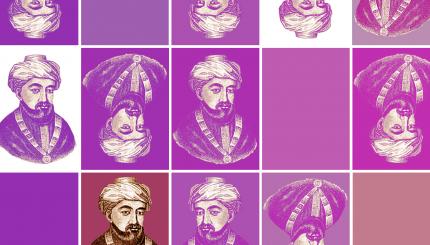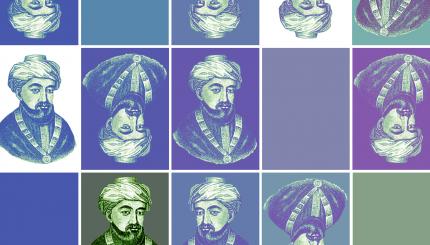The high value placed by the Jewish tradition on active concern for the welfare of others has its roots in the Torah. Phrases such as “that your brother may live with you”(Leviticus 25:35) and “you shall love your fellow person as yourself” (Leviticus 19:18) are found there. What is the rationale for Jews’ concerning themselves with other Jews’ welfare? The verses cited portray one Jew’s concern for another as motivated by a sense of brotherhood. As kinsmen, Jews have a familial responsibility for each other’s welfare.
Maimonides, the great Spanish/North African sage of the 12th century, develops this rationale in codifying the ways in which this obligation is to be fulfilled: “It is a positive commandment, ordained by the rabbis, to visit the sick, to comfort mourners, to bury the dead, to provide for a bride, to accompany guests, to arrange for burial, to bear the bier on one’s shoulder, to go before the coffin and to mourn, to dig the grave and to bury the dead. Also to gladden a bride and groom and to provide for all their needs.
This is what is called ‘g’milut hasadim‘, acts which one does with one’s person [as opposed to those one does with one’s money], [and] which have no set minimum or maximum [see Peah 1:1]. Although these are rabbinic commandments [i.e., commandments ordained by the rabbis], they are included in the Biblical commandment “You shall love your fellow person as yourself” (Leviticus 19:18). Everything that you want others to do for you, do for anyone who is your brother [in that he is similarly obligated] by the and the commandments.” (Mishneh Torah, Laws of Mourners, chapter 14.)
How is one to act on this principle? Maimonides’ “do for others…” principle implies a high degree of concern not only for others’ physical welfare, but also for their feelings and dignity. In such acts as visiting the sick or comforting mourners, one shows concern for those in emotional distress.
With your help, My Jewish Learning can provide endless opportunities for learning, connection and discovery.
Providing for a bride’s material needs for her wedding and “gladdening a bride and groom” at their wedding celebration ensure that the bride and groom know that the community wants them to have a happy start in married life.
In “bearing the bier on one’s shoulder” and in “going before the coffin,” one shows concern for the deceased’s dignity, as one does in other aspects of attending to the needs of the deceased: preparing the body for burial, providing constant attendants until the funeral, and even, in some communities, asking forgiveness for those who did these things if any indignity was caused to the deceased.
 Providing for the needy and homeless, too, must be done in a way that shows concern for the recipients’ feelings, not only for their financial need. “Rabbi Yannai saw a man give money to a poor person in public. Rabbi Yannai said: It would have been better for you not to give him money than to give him money and embarrass him” (BT, Hagigah, 5a). Maimonides writes that one should give to the poor “with a pleasant expression and happily, while commiserating with the needy person about his suffering…If a needy person asks for money and one has nothing to give him, one should make him feel better by speaking nicely with him.” (Mishneh Torah, Laws of Gifts to the Poor, chapter 10)..
Providing for the needy and homeless, too, must be done in a way that shows concern for the recipients’ feelings, not only for their financial need. “Rabbi Yannai saw a man give money to a poor person in public. Rabbi Yannai said: It would have been better for you not to give him money than to give him money and embarrass him” (BT, Hagigah, 5a). Maimonides writes that one should give to the poor “with a pleasant expression and happily, while commiserating with the needy person about his suffering…If a needy person asks for money and one has nothing to give him, one should make him feel better by speaking nicely with him.” (Mishneh Torah, Laws of Gifts to the Poor, chapter 10)..
A Talmudic statement (Babylonian Talmud, Sotah 14a) offers a different rationale for the preoccupation with social welfare. Rather than emphasizing brotherhood, this passage sees concern for social welfare as deriving from the commandment to emulate God: “Rabbi Hama, son of Rabbi Hanina taught: How can one ‘walk in the ways of God’ (as Deuteronomy 13:5 demands)? …One should emulate the traits demonstrated in His actions. Just as He clothes the naked (citing Genesis 3:21, in which God is said to clothe Adam and Eve), so must you clothe the naked. Just as He visits the sick (citing Gen 18:1 in which God is said to visit Abraham after his circumcision), so must you visit the sick. God buried the dead (citing Deuteronomy 34:6, where God is said to bury Moses), so must you bury the dead.”


